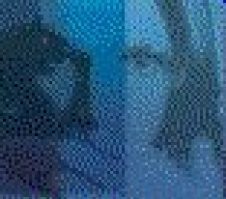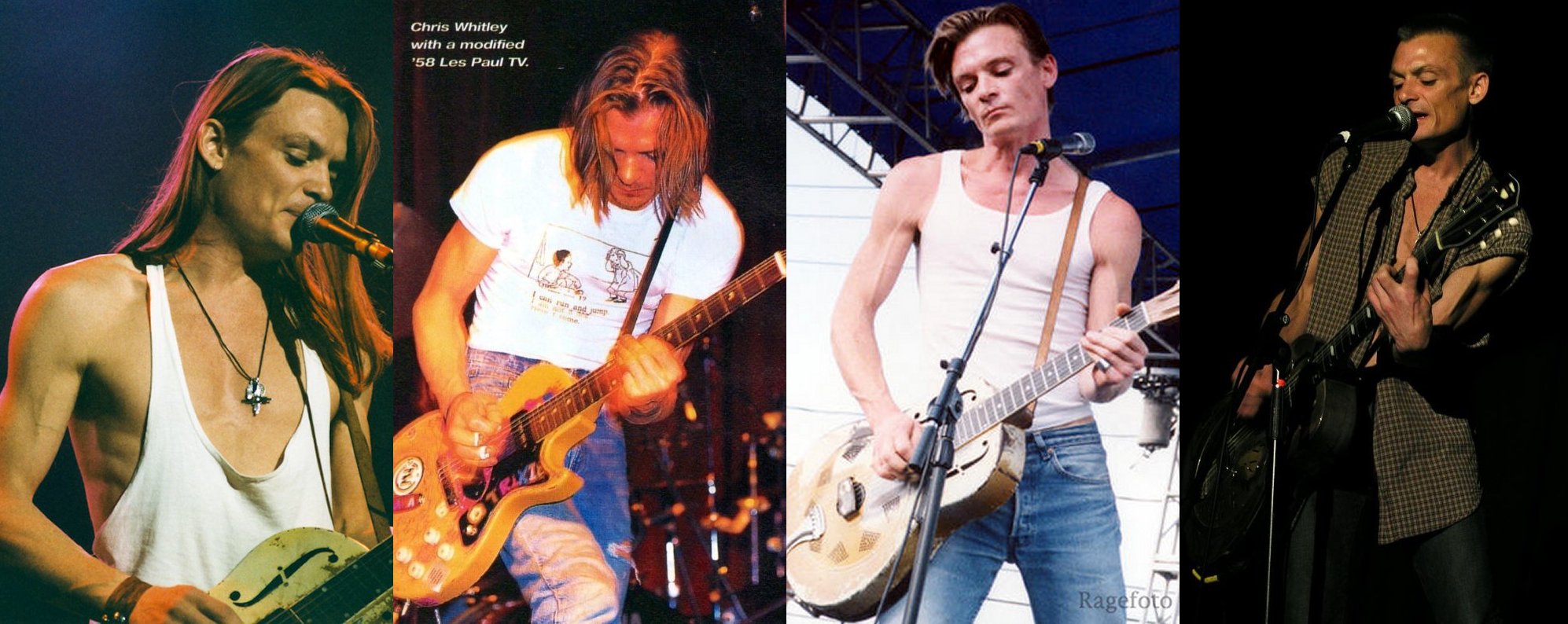When I first listened to “Dead Cowboy Song” [DCS] on Chris’s 2004 album War Crime Blues, I assumed that he had written it in response to the Al Qaeda attack on the World Trade Center on September 11, 2001. The lyric about “the towers lick the wrecking ball” surely suggested that. But, in an interview, Chris explained the genesis of the WCB album and highlighted my erroneous assumption:
One track, “Invisible Day,” was recorded under a bridge, complete with ambient park sounds. “I just wanted to do it on the Elbe River,” Whitley explained. “Purely sentimental.” The overpass over the Elbe was, according to the 43-year-old musician, the one bridge not destroyed in the Dresden bombings of the Second World War. Those bombings, a brutal Allied campaign against a city of no military importance, are the offenses of War Crime Blues. Mistakenly, the album’s title has been interpreted as a reference to much more recent misdeeds.
In another interview, Chris described how living in Dresden during the early 2000’s affected him and informed the original tracks recorded on the album:
“I actually put out War Crime Blues more than a year ago in Europe,” Whitley says. “It wasn’t written around these elections at all. Really, I didn’t even know what was inspiring it. Looking at it now, a lot of it was living in Dresden and being an American and feeling my own awareness of — or lack of — history. At the same time, the World Trade Center came down, and I guess I started to ask questions. I woke up one morning in Dresden — which we bombed the shit out of (in WWII), remember — and looked out the window on September 12th at this empty lot with an American flag at half-mast and all these candles around it. I thought it was Martin Luther King Day or something…we bombed the shit out of this city, and there’s this American flag at half-mast for the World Trade Center! It kind of shocked me — my own sort of American isolatedness, if you will. A lot of that went into the record. I can’t really write that sort of thing well, that topical shit. I mean, I can’t do it honestly. Bob Marley could do it. Sting does it and it sounds ridiculous — like rhetoric. And it’s way too important to sound like rhetoric. You can’t turn it into jive or sloganeering.”
In yet other interviews, Chris concluded that the album was not about war at all:
Singer-songwriter Chris Whitley’s new album is called “War Crime Blues” – but he says that despite what some fans have assumed, the title isn’t a veiled allegation about the situation in Iraq. “It’s not topical. I don’t write topical songs,” he said. “It was basically questioning my own internal pain about people killing other people but, in the end, it turned into a whole existential exercise about questioning love and mortality, not some topical thing.”
An anti-war protest album may seem like a quaint, hippie notion to some. Yet the title of guitarist Chris Whitley’s War Crime Blues now seems sadly prescient — just as its driving emotions of frustration and anger, sorrow and pity, threaten to feel like fresh wounds for the foreseeable future. …. The mix of apposite covers and potent originals may carry a cautionary message of “Life is short (and then you die).” But for all the raw feelings channeled into these songs, not a single verse is stridently “political” or superficially nihilistic. A sense of hope and beauty resonates in Whitley’s vital, very human musicality. …. Perhaps most powerful is the closing track, an a cappella version of the old pop/jazz standard “Nature Boy.” The famous closing lines have never sounded more desperately, elusively true than here, with Whitley sounding like a fallen angel offering hard-won wisdom: “The greatest thing you’ll ever learn/Is just to love and be loved in return.”
So, nope, my original take on WCB and, specifically “Dead Cowboy Song,” was wrong … as I discovered when the ATCW group first discussed the album and the song. Now that I have Metter Bozze’s tour guide and a few hundred bootlegs from Hiroshi and others, I can date the first recorded live performance of DCS to 1998-04-23 at Fletcher’s in Baltimore, MD:
Sheets of golden velvet rain
Lubricate your windowpane.
Burn the seed and burn your bread
With a dead boyfriend in your bed.
Jews kneel (?) against the wall. [Shoot you all against the wall??]
The towers [rape? break?] the wrecking ball.
The semen spread upon the ground
The dead boyfriends [plural or possessive?] dead all over town.
Could you talk about your writing process?
I used to write lyrics first when I began writing songs …. Nowadays I use chord, chord change or a riff as feeling or mood to try to define something lyrically. Basically I try to play shit and mumble over it and listen to it in a Walkman and see what I’m trying to get at subconsciously. I can’t really pick subjects and write about them— I’m not that much of a craftsman., I think that I’m not that motivated to just write about anything.
So the topics come from the mood of the song?
Yeah, it’s trying to pull out what you’re feeling without really defining it too much consciously so that the emotion is more, perhaps more intense or more pure or trying to translate something else. It’s really trying to get at the subconscious for me. I think that’s the most exciting thing. …. [T]he song has to define itself a bit in order for me to be able to weed out the abstractions. I don’t mean like surrealism or something, it’s more like poetics. I read a lot of Charles Simic, Pablo Neruda, and lately, Garcia Lorca. But it’s also from visual art; my mom’s a sculptor. What I’m trying to say is, what the tune is literally about is not necessarily as important as the impetus and how resonant the expression is.
However, Julie Jacobs, one of Chris’s close friends, noted that “He read Manifestos of Surrealism while writing Din.”
Also working against his claim to have “just made it up” on the spot is the deliberateness and confidence of his guitar playing. This excerpt from a review at Pop Matters describes that assertive playing as recorded on the CD, but could apply to this first live recording as well:
Furthermore, Hiroshi Suda, our resident CW-whisperer, pointed out that, given the tuning, he thinks this song may be “Terra era”:


